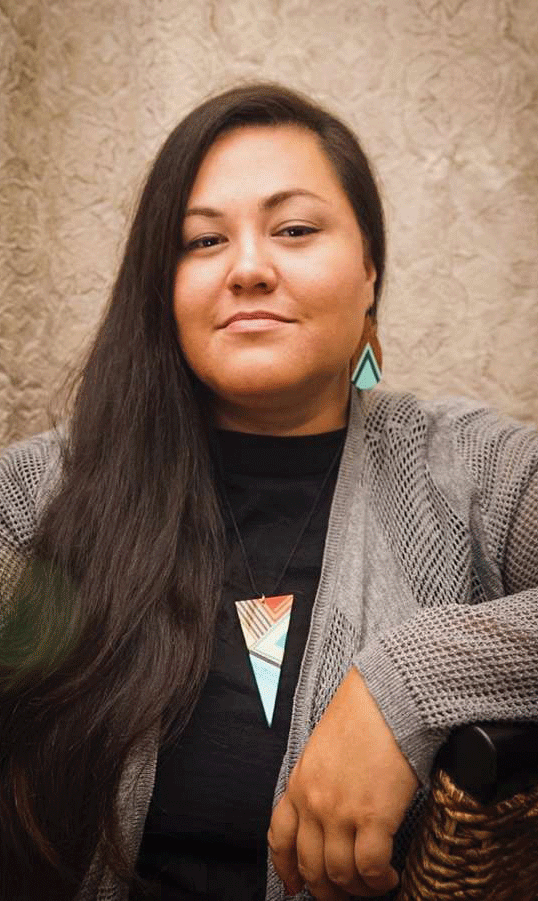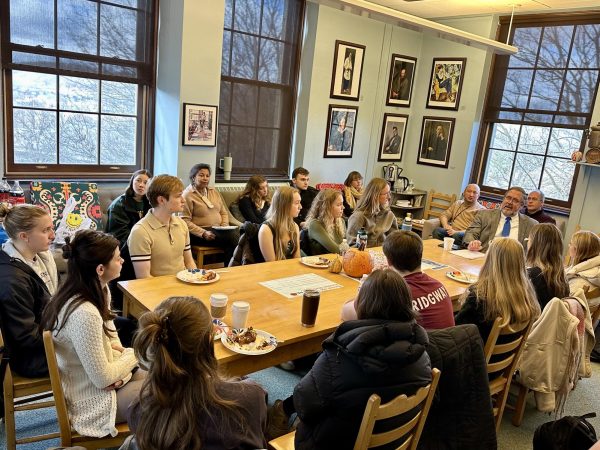Taté Walker on Native American Sexualities
Lakota activist Taté Walker discussed a gender identity that encompasses both male and female gender expressions.
On Friday, September 9, Lakota feminist and activist Taté Walker gave a lecture about gender and sexual identities in Native American cultures at the Colgate Center for Women’s Studies. Walker is a member of the Everyday Feminist Speaker’s Bureau, a group of individuals affiliated with Everyday Feminism, an online publication that discusses issues of sexism, racism, gender and oppression. Walker, a journalist, civil rights activist and teacher, discussed her unique perspective to the group of Colgate students and faculty gathered in the Center for Women’s Studies.
Walker began her talk by addressing her experiences and how they have shaped her identity. She grew up in her father’s Catholic household, in which she felt limited by the conservative stereotypes surrounding her lesbian identity. When she reconnected with her Lakota mother, Walker discovered “two-spirit” identity, with which she deeply identified.
Two-spirit identity, as defined by Walker, is a gender identity that encompasses both male and female gender expressions. A two-spirit individual may be born biologically male or female, but identify with both male and female gender identities. The two-spirit identity is not at all linked with sexual orientation, although many two-spirit people have been gay, lesbian or bisexual in the past. Walker said this identity has been an established norm among Native American cultures for a very long time, but has recently become more prevalent as transgender and genderqueer issues take the national stage.
Walker then provided a more relatable, yet profound, point regarding identity and complex intersectionality in our modern American lives.
“Identity does not equal behavior, and behavior does not equal identity,” Walker said. “Not just through gender and sexuality, but in a variety of other ways. Just because you’re a drag queen doesn’t mean you’re gay, just because you’re a cross-dresser, it doesn’t mean you don’t like women.”
Walker emphasized that, while these individuals defy the gender binary, two-spirit people are widely venerated and respected in Native American cultures.
“Historically, these unique people were often consulted as marriage counselors or spiritual intermediaries because of their ability to relate to both men and women,” Walker said.
While the two-spirit gender identity may appeal to many Western and non-Native American peoples as potential personal gender expression, Walker warned that the identity should not and cannot be appropriated by people outside Native American cultures. Walker substantiated this claim by citing the lack of representation of Native peoples in American society and the cultural colonization that Western peoples have historically imposed on Native cultures.
“When we talk about two-spirits and [non-Native people] who try to claim these identities, [Native people] really have [no] representation anywhere,” Walker said. “And that’s not just with two-spirits, that’s anything, that’s media and books, too.”
Walker stated that non-Native people do not serve the same integral roles that two-spirit people do in their cultures, so Western people cannot fill the same position as two-spirit people in their own cultures.
Senior Colin Ren enjoyed Walker’s talk, as it touched upon Walker’s intersectionality of queer identity and Native American culture.
“Taté Walker’s talk is a living reminder for me to stay socially aware and engaged in cultural discussions,” Ren said.






